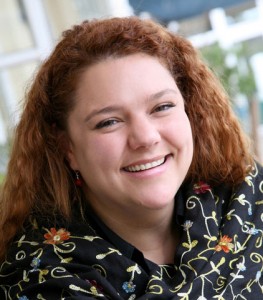Advisory Board Member: Karien Bezuidenhout
 The fifth of the blog posts from our new Open Education Working Group Advisory Board comes from Karien Bezuidenhout.
The fifth of the blog posts from our new Open Education Working Group Advisory Board comes from Karien Bezuidenhout.
Karien Bezuidenhout is Chief Operating Officer at the Shuttleworth Foundation. The Shuttleworth foundation funds a number of OER initiatives including the M4Lit project, Siyavula, and the P2PU.
******
I’m Karien Bezuidenhout and I work as the Chief Operating Officer at the Shuttleworth Foundation and I’m honored to join the Open Education Working Group.
The Shuttleworth Foundation is an innovative non-profit organisation that provides funding for dynamic leaders who are at the forefront of social change. We identify amazing people, give them a fellowship grant, and multiply the money they put into their projects by a factor of ten or more. We are always looking for social innovators who are helping to change the world for the better and are looking for some support through an innovative social investment model. The Foundation is at its core an experiment in open philanthropy and uses alternative funding methodologies, new technologies and collaborative ways of working to ensure that every initiative receives the best exposure and resources to succeed.
At the Shuttleworth foundation I focus on maintaining a strategic and operational overview of the interests of the Foundation, working closely with the Fellows in advancing openness, access and collaboration. Together they drive social and policy innovation through critical dialogue and practical interventions.
My background wasn’t in the open space. I did an undergraduate degree in accounting and taxation at the Graduate School of Business at the University of Cape Town, but I very quickly realized I don’t ever want to be in a purely finance job. I wanted to be in social development, but when I went to university I didn’t actually think of this as a viable option. After I finished my degree, I started looking around and I was fortunate enough to find a job in social development, helping to establish an organization and its programs. Next the work of the Shuttleworth Foundation looked interesting so I joined them as a Project Manager in their free and open source software unit. It wasn’t software development; it was basically advocacy programs around free and open source software, engaging government, education, the private sector and the public on the use and underlying philosophies of free and open source software. From there, I moved into the education unit at the Foundation, it was actually a very natural progression. We believe in the principles of free and open source software, and the Foundation became interested in saying, well, it’s not just about software, but also about an intersect between the ideas behind free and open source software and education. We became interested in this idea of open education or open educational resources, and it went from there. My position grew with the organisation’s interest in this area. So I started as a Project Manager specifically around this area, grew to a Program Manager, and from there I became the Chief Operating Officer.
Once I joined the Shuttleworth Foundation I found out about open source and felt strongly that everyone should actually know about it. That was in 2004. Now I actually find more and more people have at least heard about something in this general area, whereas at that stage it really was just in the realm of geeks.
The underlying philosophy of the Foundation is around methods of openness – the values that underly the free and open source software movement. Transparency, building communities, collaborating, sharing, building on what others have done, making available what we’ve done. These, for us, are the values of what we’re trying to do in open education as well. The Cape Town Declaration was an important part of this journey and there are three things from the Cape Town Declaration that is important for us: People should participate. (Open education is about more than open licenses.) People should make their works available under open licenses. And people should make policies to allow for and encourage these things to happen.
I now feel that connecting people is incredibly important, and here is a role for the working group. It seems the role is evolving, including more networking and connecting the people in this space.
 Open Education Working Group
Open Education Working Group 




Leave a Reply